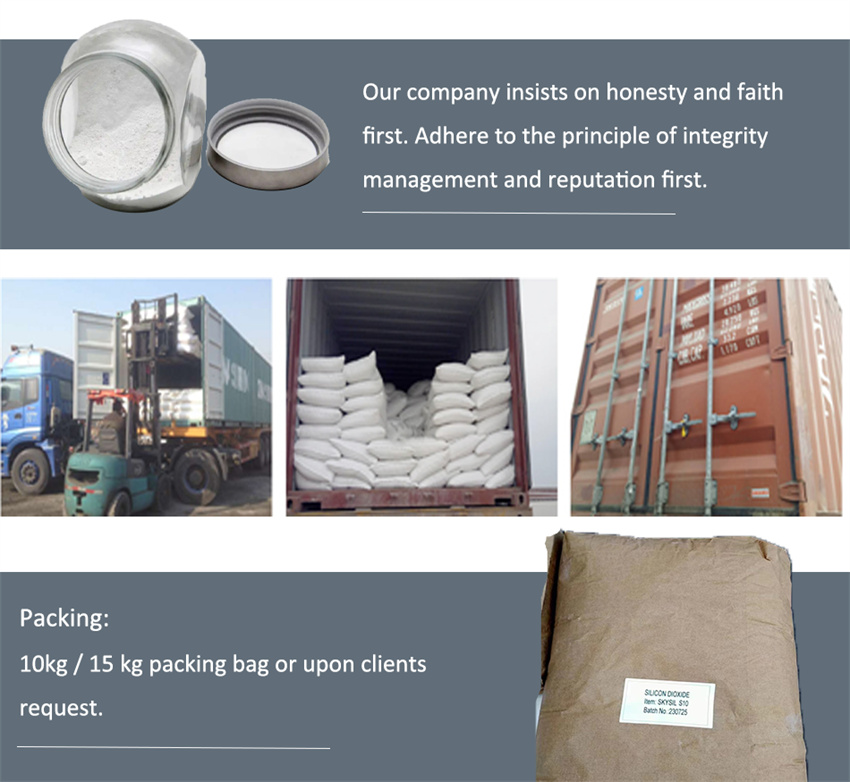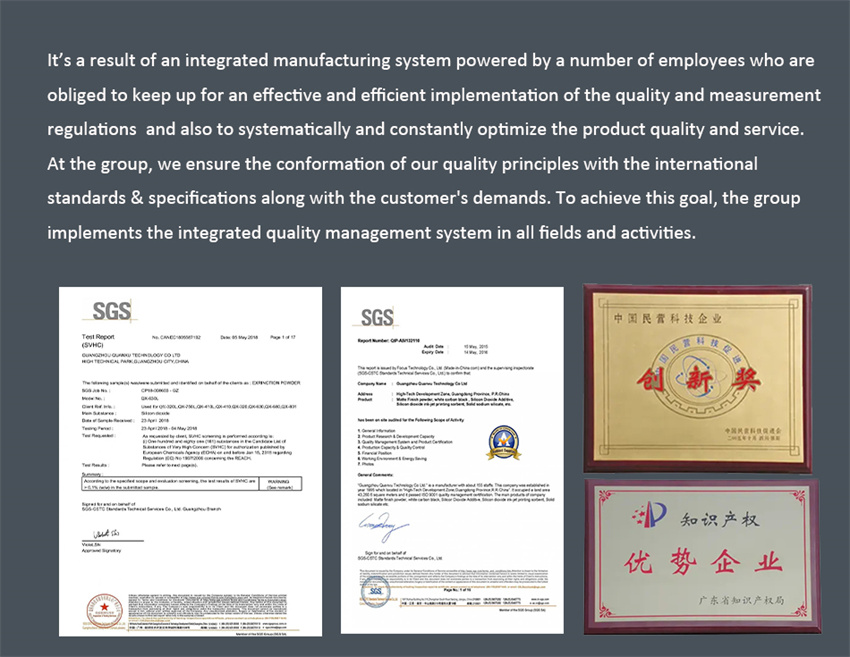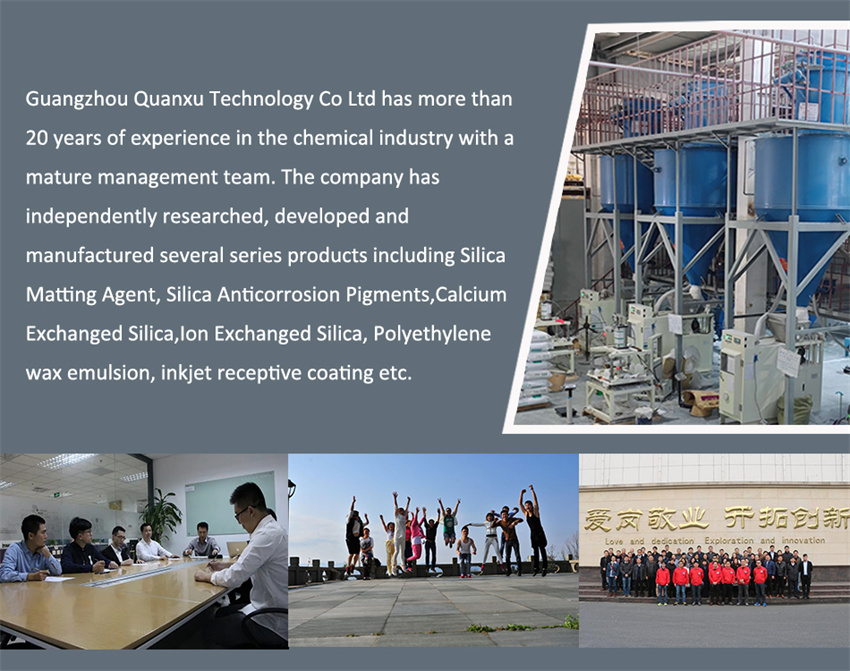
Privacy statement: Your privacy is very important to Us. Our company promises not to disclose your personal information to any external company with out your explicit permission.
Products
Model No.: H-903
Brand: Quanxu
Place Of Origin: China
Main Ingredient: Acrylic, Epoxy, Nitrocellulose, Polyurethane
Application Field: Appliance Paint, Furniture Paint, Paper Coating, Plastic Coating, Car Paint
Instructions: Spray, Brush
Status: Powder Coating
Packaging: 25kgs/Bag
Productivity: 10000 Ton/Month
Transportation: Ocean,Land,Air
Place of Origin: China
Supply Ability: 10000 Ton/Month
Certificate: ROHS
Port: Guangzhou,Shenzhen,Shanghai
Payment Type: L/C,T/T,D/P
Incoterm: FOB,CFR,CIF,EXW


The new method for preparing silicon dioxide mainly uses non-metallic minerals and their extensions as silicon sources
and adopts precipitation method to prepare silicon dioxide. The key technology is to transform crystalline silicon dioxide
and silicate into amorphous silicon dioxide. The raw materials mainly include wollastonite, opal, halloysite, olivine,
serpentine, kaolin, hard kaolin, coal gangue, fly ash, etc.
Silicon dioxide
This paper focuses on the process technology of preparing silicon dioxide using kaolin or hard kaolin, coal gangue or fly ash
as raw materials
(1) Using kaolin or hard kaolin as raw materials
First, crush the kaolin or hard kaolin to 50~60 mesh, then roast it at 500~600℃ for 2 hours, then mix the roasted soil with 30%
industrial hydrochloric acid at a ratio of 1:2.5 (weight), acid-leach at about 90℃ for 7 hours, and obtain silicon dioxide after
neutralization, filtration, washing and drying. The product quality meets the GB10507-89 standard; at the same time, obtain
high-efficiency water purifier polyaluminium chloride. The reaction formulas for roasting and acid leaching are as follows:
Roasting: Al2O3•2Si02•2H20—>Al2O3•2Si02+2H20
Acid leaching: Al2O3•2Si02+6HCl+9H20—>2AlCl3•6H20+2SiO2
(2) Using coal gangue or fly ash as raw materials
First, crush the coal gangue or fly ash to a particle size less than 120 mesh, and then divide it into two steps:
One-step production of sodium silicate: mix the crushed coal gangue or fly ash with soda ash in a weight ratio of 1:50, and then melt
it at high temperature (1400~1500℃, 1 hour), extract it with water (above 100℃, 4~5 hours), filter out impurities, and concentrate the
filtrate to 45~46 degrees Baume to obtain sodium silicate.
Two-step production of silicon dioxide: first prepare sodium silicate into water glass solution (modulus of 2.4~3.6, SiO2 content of 4~10%),
then acid-soak in 5~20% sulfuric acid (28~32℃, 8~16 hours), then heat to 80℃, stir, adjust pH value to 5~7, mature for 20 minutes, then filter,
wash, dry and sort to obtain silicon dioxide. The silicon dioxide is active and high in purity.

| Type | H-903 | Loss on drying(105℃,2hrs),% | ≤5.0 |
| Content of Sio2 (dry based) %, | ≥99.0 | Ignition loss(1000℃,2Hrs),% | ≤6.0 |
| Porosity ml/g | 1.8-2.0 | Whiteness,% | ≥90.0 |
| Oil absorption, g/100g | 260-300 | PH(5% Liquor) | 6-7 |
| Particle Size, um(Malvent,D50) | 6.0-7.0 | Surface Treatment | None |







Anticorrosion Pigments, Inkjet Receptive Coating, Matting Agent
Product Categories : Matting Agent > Matting Agent For Inkjet Receptive Coating For Cast Coated Paper


Privacy statement: Your privacy is very important to Us. Our company promises not to disclose your personal information to any external company with out your explicit permission.

Fill in more information so that we can get in touch with you faster
Privacy statement: Your privacy is very important to Us. Our company promises not to disclose your personal information to any external company with out your explicit permission.